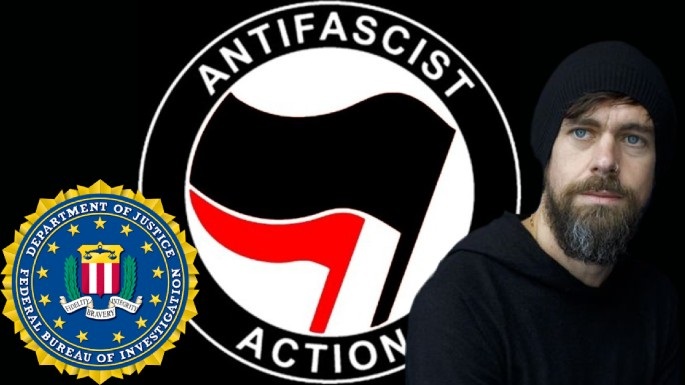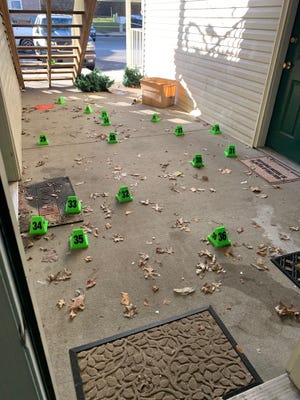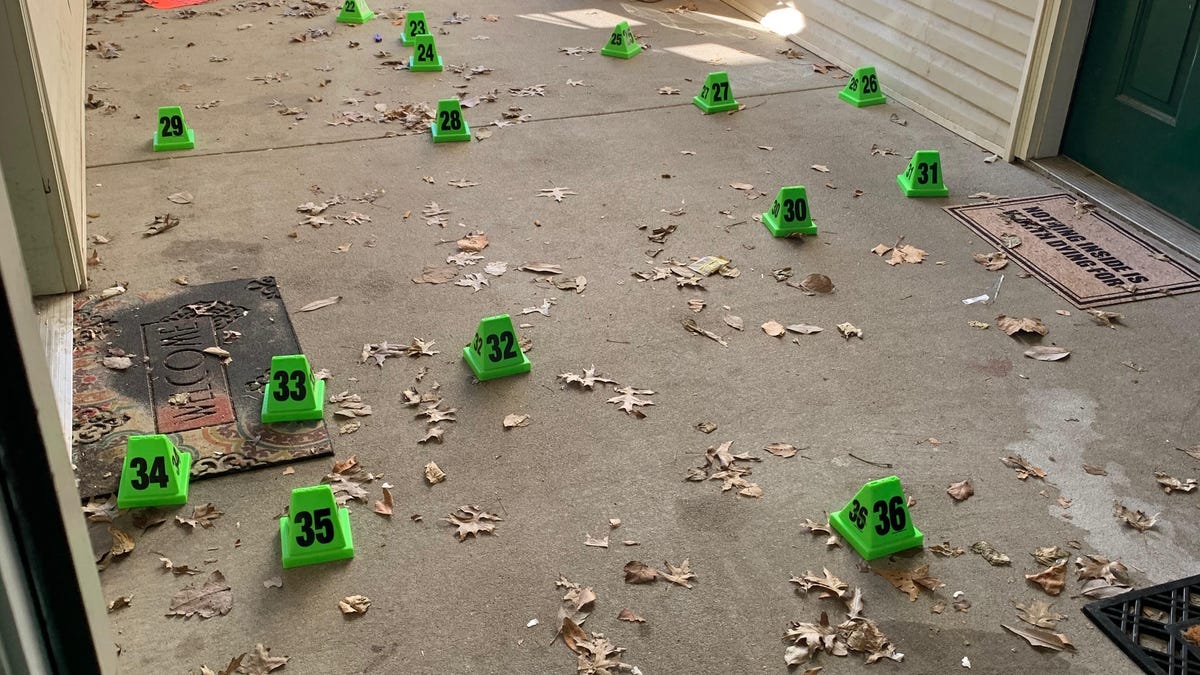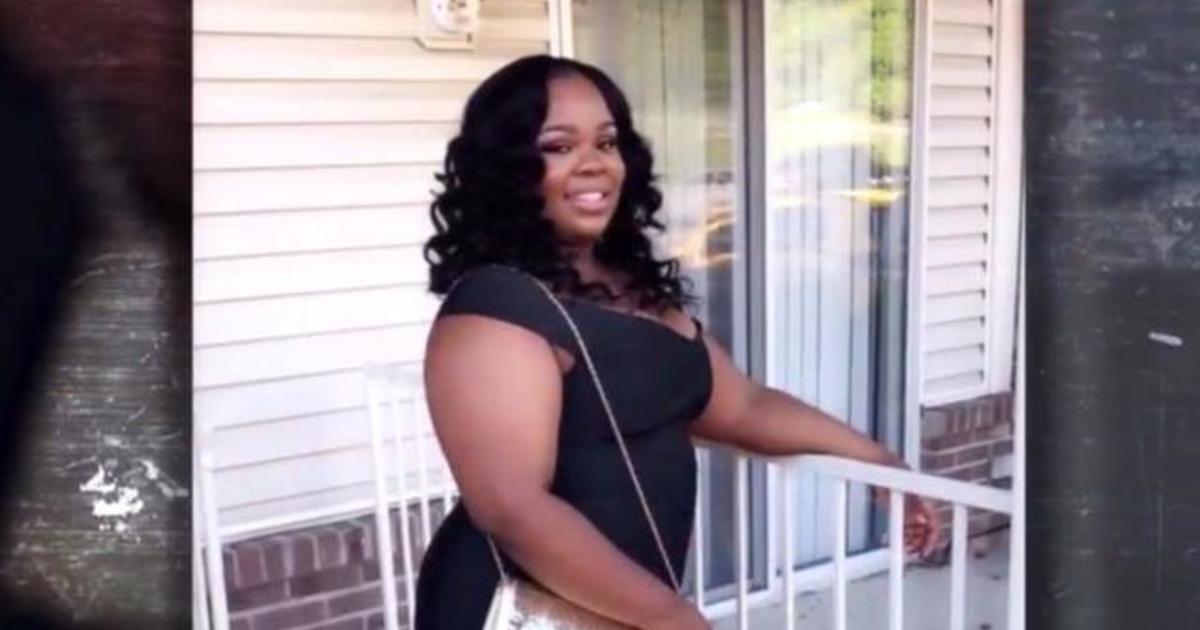Commentary: Reasons continue to emerge to doubt the results of the Breonna Taylor investigation
The report
released last week by Kentucky Attorney General Daniel Cameron painted a convincing picture of a clearly justified police shooting. According to the report, the cops clearly knocked first and fired into Taylor's apartment only after one of the officers, Sgt. John Mattingly, was shot first by Taylor's boyfriend, Kenneth Walker.
Based on these facts, the shooting appears to be a tragedy but not a criminal homicide.
Walker, for his part, appears to have had a legitimate belief that he was defending his girlfriend from an intruder (who might well have been Taylor's apparently dangerous drug dealer ex-boyfriend whose bad information led to the evening's tragic events). The police, having been shot first, had no reasonable alternative but to return fire.
Sounds like an open-and-shut case, right? Not so fast. Since Cameron's report was issued last week,
a steady trickle of facts has emerged that casts doubt on the integrity of the investigation and the truthfulness of the Louisville Police Department.
The first revelation that generated questions about the investigation actually dropped this month and centers around the use of body cameras. In 2012, the Louisville Police Department began a massive research project on the effectiveness of body cameras in certain test units. The researchers concluded that outfitting every officer on the force with a body camera would "yield several positive results for police personnel and for police-community relations including a reduction in use-of-force, reduction in civilian complaints, and reduction in assaults on officers." The department accordingly launched a
very public program designed to ensure that all patrol divisions, SWAT, and K9 units would immediately be equipped with body cameras.
So when the Taylor shooting first became a source of public controversy, the immediate question everyone asked was, "What does the body camera footage say? Let's see it."
The public was told by former LMPD chief
Steve Conrad that the officers in the particular division that carried out the raid were somehow not wearing body cameras. A person possessed of even minimal foresight could have predicted that sending police to bust down the door of a suspected drug stash house in the middle of the night would lead to exactly the kind of scenario where having a body camera would be handy to avoid exactly the kind of scenario that is being played out. Yet LMPD insisted that
there simply was no body camera footage available because somehow none of the officers present was wearing one.
That, however, has turned out not to be true. In response to a public records request from Vice News, police turned over a large volume of crime scene photos from the night of Taylor's shooting. One of them captures Detective Tony James, who was
present for the raid, clearly wearing a body camera over his right shoulder. Myles Cosgrove, the officer who
fired the shot that killed Breonna Taylor, was also photographed, and a body camera harness was clearly visible, but the
body camera itself was nowhere to be found.
The LMPD has repeatedly refused to explain even whether James' camera was turned on, and if it was not, why it was not, nor why Cosgrove was wearing a body camera harness apparently without a body camera.
Additional footage taken by body cameras of the patrol officers and SWAT teams who arrived later at the scene show that the officers involved in the raid committed several flagrant violations of LMPD policies that are designed to ensure the integrity of investigations into officer-involved shootings, leading to questions about the integrity of the crime scene and of the witness statements that were taken after the fact.
Notably, for obvious reasons, officers who are involved in a shooting are prohibited per LMPD policy from being involved in the investigation of those shootings and are furthermore explicitly required to be promptly separated from the scene and paired with a "peer support" escort who can both comfort shaken officers and also vouch for the fact that the officers did not fabricate evidence or otherwise adulterate the crime scene.
Videos taken of the
shooting aftermath show that this policy was flagrantly disregarded, particularly by the now-terminated
Hankison and Cosgrove, and that the SWAT and Public Integrity Unit officers who were there
complained aloud about the officers they were investigating still being "in the mix" and even actually in the active crime scene. One of the other officers involved in the raid was also observed to have left the scene and been canvassing witnesses.
At the risk of overstating the obvious, it is not good to have cops who are under investigation for a shooting mucking around alone at the scene of the shooting for hours after the fact
or speaking alone to potential witnesses, if for no other reason than to ensure public confidence in the integrity of the investigation.
This is especially important because of the controversy surrounding the critical question of whether officers knocked and announced themselves as police. Police say that they found a witness who corroborates their claim that they knocked.
That witness, Aaron Sarpee, initially told police on March 21 that he did NOT hear officers identify themselves as police.
He was unequivocal — he saw the police cruisers outside and he saw some of the officers in uniform, but no one identified themselves as police when they knocked.
Two months later, in a May 15 interview, Sarpee told PIU investigator Sgt. Amanda Seeyle, "It's been so long now. ... I remember some of it," and
eventually told her that he heard someone say, "This is the cops." Meanwhile, against this admittedly shaky testimony,
over a dozen other witnesses allegedly stated that they did NOT hear anyone announce themselves as police. We still do not know whether any of these witnesses' statements were provided to the grand jury or considered in their deliberations, or if any of them testified in front of the grand jury.
Finally, it should be noted that ballistics information released over the weekend
does not support AG Cameron's claim that Walker shot first and struck one of the officers.
The ballistics report from the LMPD PIU was not able to match the bullet pulled from the thigh of Sgt. Mattingly. A separate FBI ballistics report has not yet been released. Cameron said last week that friendly fire had been ruled out as the source of the bullet that struck Mattingly because Walker's gun was a 9mm and the officers involved in the raid were issued .40 caliber weapons. However, Walker's attorney claims that a review of Hankison's file indicates that
Hankison was also issued a 9mm weapon; when the Louisville Courier-Journal requested to review those records, it was
stonewalled.
I am not claiming that I know for sure what happened on the fateful night that Breonna Taylor was shot. But the problem is, it's difficult for anyone else to make that claim, either. And the conduct of the LMPD on that night (and since) has opened the window for those who are skeptical of police who have an obvious motive to lie or shade the facts to forever disbelieve the narrative that the LMPD is now offering us. And the end result of these actions will only be to continue to erode the bond of trust between police and the citizenry that is necessary for all of us to live in peace.
Read more:

 www.naturalnews.com
www.naturalnews.com










